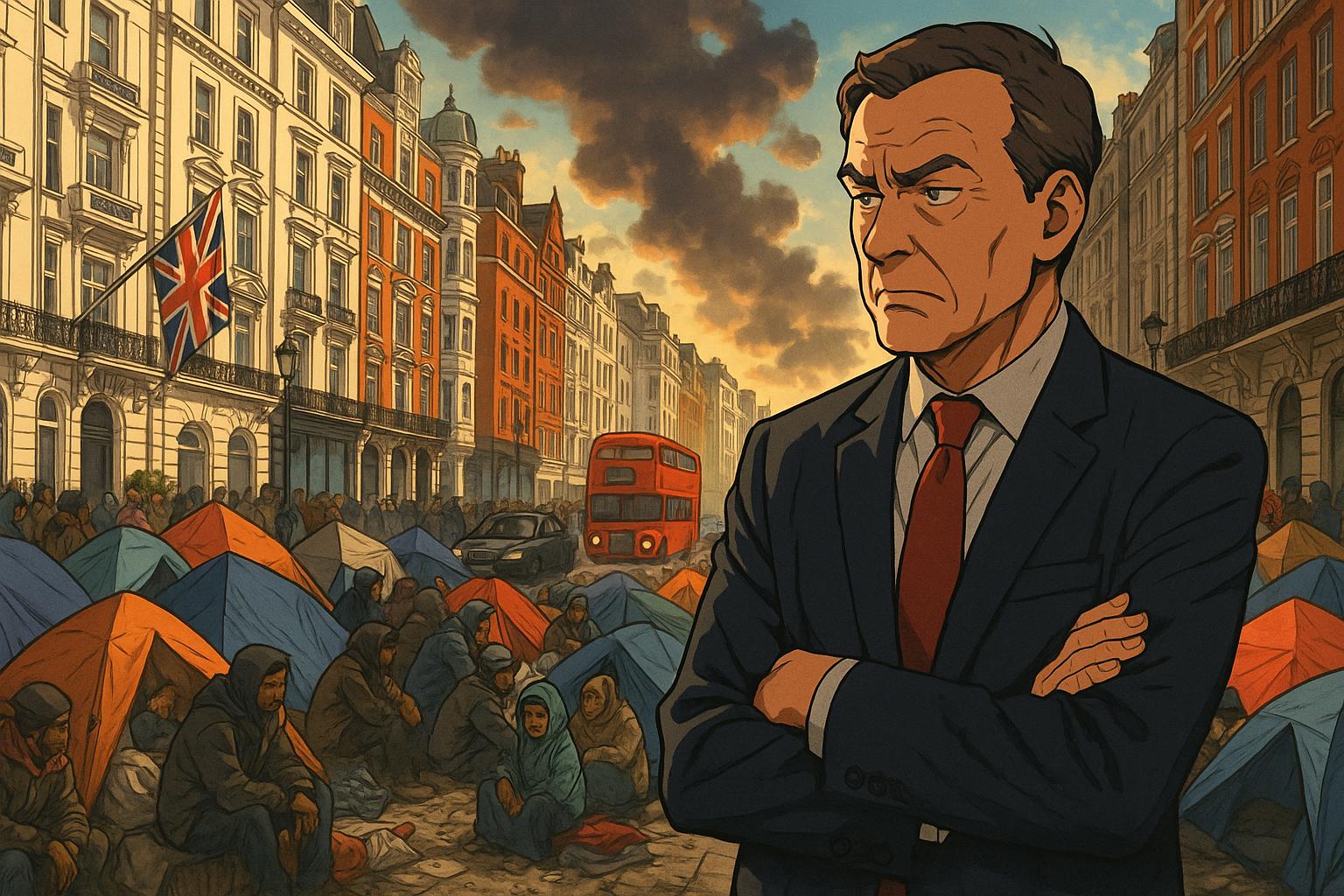Sadiq Khan's recent comments about the migrant encampment on Park Lane have ignited a firestorm of outrage, particularly among residents of one of London’s wealthiest neighbourhoods. The encampment not only raises serious public health concerns but also serves as an uncomfortable reminder of an escalating issue with homelessness that Khan has failed to confront effectively.
In response to a worried Londoner detailing their family's distressing encounters with the encampment—ranging from public defecation to aggressive begging—Khan’s office defended the presence of migrants, calling migration a “huge strength” of London. This misjudged commitment to inclusivity overlooks mounting frustrations from local residents who are fed up with unsightly conditions and the disorder that accompanies them. To those living in proximity to such encampments, the Mayor’s insistence on the benefits of migration feels more like a denial of their lived experiences than a genuine solution to pressing social issues.
Critics are rightly alarmed. Susan Hall, the leader of the London Conservatives, slammed the administration for its inaction, pointing out the glaring disconnect between Khan’s priorities and the serious concerns of ordinary Londoners. Local residents are not asking for platitudes about the cultural contributions of migrants; they are demanding tangible solutions to the chaos they encounter daily.
This scenario on Park Lane is emblematic of a broader crisis of homelessness and encampments proliferating in affluent areas across London. Reports show a troubling increase in these encampments, often populated by individuals facing extreme socioeconomic challenges. While local councils like Westminster City Council have taken steps to clear these camps, their efforts are frequently undermined by insufficient support systems and a lack of coherent policy addressing the root causes of homelessness.
Transport for London (TfL) has recently dismantled a camp that housed around 40 people, citing safety and welfare concerns. Yet these actions merely scratch the surface of an ongoing crisis, with a backlog of homelessness cases exacerbating the situation. The vague policies surrounding the issue have only added to the sense of helplessness felt by concerned citizens.
In particular, the visibility of specific groups, including Roma individuals who beg, has sparked increased tensions and debates around the intersection of migration and homelessness. As London’s communities grapple with balancing compassion for vulnerable populations and the legitimate concerns of residents seeking safety and cleanliness, unresolved questions linger.
As discourse continues to evolve, Khan’s administration must grapple with the imperative of aligning its values of inclusivity with the pressing need for public order and cleanliness in London’s streets. The effectiveness of the Mayor's ambitious promise to eliminate rough sleeping by 2030 will come under intense scrutiny, especially in light of rising societal tensions over homelessness and public safety.
This complex issue demands a comprehensive response—one that prioritises both the dignity of homeless populations and the fundamental rights of local communities. Londoners, while historically welcoming, are growing increasingly vocal in their insistence on actionable plans that safeguard their public spaces from disorder.
Source: Noah Wire Services
